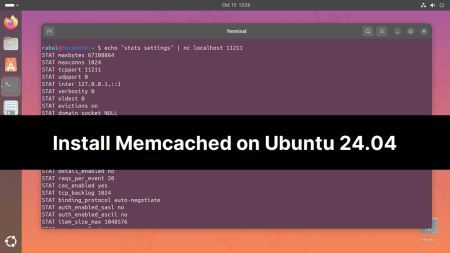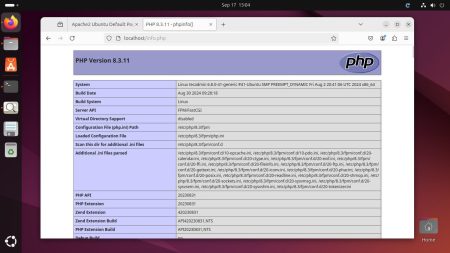On your system, if you have installed multiple versions of PHP (eg PHP 8.2, 8.1, 8.0, 7.4, 7.3, 7.2, 7.1 and 5.6). For example, If you system is configured with PHP 8.1 as default PHP for Apache and command line and any application required previous PHP version like 7.4. Then you don’t need to remove PHP 8.2 to configure application for 7.4. You can easily change the default PHP version for the Apache and command line.
We assume you have installed multiple PHP version on your Debian system. Now you need to switch the active PHP version for CLI and Apache2. This tutorial will help you to switch between multiple PHP versions for Apache server and CLI on Debian.
- Read => How to Install PHP on Debian 12 via PPA
- Read => How to Install PHP on Debian 11 via PPA
- Read => How to Install PHP on Debian 10 via PPA
I have installed PHP 8.2, PHP 7.4 and PHP 5.6 on our Debian system. You can use the same for other PHP versions by changes commands accordingly.
Enable PHP 8.2 as Default Version
You need to set PHP 8.2 as your active PHP version for CLI and Apache2 both. You can do this by disabling Apache2 modules for all other installed PHP versions and configure CLI using the update-alternatives command.
- For Apache:-
Run the following command to disable Apache module for other PHP versions.sudo a2dismod php7.4 php5.6Now, enable PHP 8.2 module in Apache server.
sudo a2enmod php8.2sudo service apache2 restart - For Command Line Interface:-
sudo update-alternatives --set php /usr/bin/php8.2sudo update-alternatives --set phar /usr/bin/phar8.2sudo update-alternatives --set phar.phar /usr/bin/phar.phar8.2sudo update-alternatives --set phpize /usr/bin/phpize8.2sudo update-alternatives --set php-config /usr/bin/php-config8.2
Note – The phpize8.2 and php-config8.2 command is available in php8.2-dev package. This is more useful for compiling PHP modules using pecl.
Enable PHP 7.4 as Default Version
You need to set PHP 7.4 as your active PHP version for CLI and Apache2 both. You can do this by disabling Apache2 modules for all other installed PHP versions and configure CLI using the update-alternatives command.
- Apache:-
Run the following commands to disable Apache module for other PHP versionssudo a2dismod php8.2 php5.6Now, enable PHP 7.4 module in Apache server.
sudo a2enmod php7.4sudo service apache2 restart - Command Line Interface:-
sudo update-alternatives --set php /usr/bin/php7.4sudo update-alternatives --set phar /usr/bin/phar7.4sudo update-alternatives --set phar.phar /usr/bin/phar.phar7.4sudo update-alternatives --set phpize /usr/bin/phpize7.4sudo update-alternatives --set php-config /usr/bin/php-config7.4
Note – The phpize7.4 and php-config7.4 command is available in php7.4-dev package. This is more useful for compiling PHP modules using pecl.
Enable PHP 5.6 as Default Version
The developers of PHP are no longer supporting PHP 5.6. It is strongly recommended to upgrade to higher PHP version like 7.4 or 8.2. But still you can install and Use php 5.6 on your Debian system if your application required PHP 5.6. Let’s set PHP 5.6 as your default version for CLI and Apache2 both.
- Apache:-
Run the following commands to disable other PHP versions like (php 8.2, php7.4 etc) for Apache and command line.sudo a2dismod php7.4 php8.2Now, enable PHP 5.6 module in Apache server.
sudo a2enmod php5.6sudo service apache2 restart - Command Line:-
sudo update-alternatives --set php /usr/bin/php5.6sudo update-alternatives --set phar /usr/bin/phar5.6sudo update-alternatives --set phar.phar /usr/bin/phar.phar5.6sudo update-alternatives --set phpize /usr/bin/phpize5.6sudo update-alternatives --set php-config /usr/bin/php-config5.6
Note – The phpize5.6 and php-config5.6 command is available in php5.6-dev package. This is more useful for compiling PHP modules using pecl.
Conclusion
In this tutorial, you have learned about switching PHP versions on Debian system. You can change the default PHP version without uninstalling the other versions.



13 Comments
Thanks for your artile ! If i have one app in 5.6 and 5 in 7.4; is there a ay to tell Apache “when your are requested in this path, use 5.6, else use 7.4”?
You can configure php-fpm for the site using PHP 5.6: https://tecadmin.net/install-apache-php-fpm-debian-10/
Thank you very much for this tuto , it is very helpful !
This will break php. your php info is no longer going to function?
Many thanks for your helpful instructions and information.
This is a great post, Rahul.
Thank you for sharing. Just the process I have been looking for after upgrading from 7.2 to 7.4, my php -v shows 7.4, but my phpinfo() is still using 7.2!
Follow-up to above post: Do we need to run both Apache and command line or just either one will do?
Apache instruction will change PHP for web server only. And command line instruction will change for command line only.
So change php version as per your server requirements.
hi there and thanks a lot, just after applying update-alternatives my custom php app is not working on phpinfo() ; ?> I don’t see anymore a PHP output.
Any solution to that?
hi there and thanks a lot, just after applying update-alternatives my custom php app is not working on phpinfo() ; ?> I don’t see anymore a PHP output. Debian 9, on alternatives do we change the path?
Any solution to that?
Thank you very much.
Thanks, great tutorial. I needed to change the CLI PHP version without forcing the change to affect Apache / Nginx
Thank you very much, Rahul, this article is most helpful. In fact, it cured at least one of my headaches.
Best regards,
Rüdiger